ADHD Menopause Brain Burnout
 ADHD – Menopause – Brain Burnout – Anxiety & Depression. Many women are being diagnosed with ADHD / ADD later in life. They have had undiagnosed ADHD all their lives, and as they age, they wonder if they actually have Alzhymers?
ADHD – Menopause – Brain Burnout – Anxiety & Depression. Many women are being diagnosed with ADHD / ADD later in life. They have had undiagnosed ADHD all their lives, and as they age, they wonder if they actually have Alzhymers?
My musings about my post menopausal ADHD diagnosis. Written by Aleena Aspley 10 July 2023
.
.
WHAT, REALLY …. IT’S ADHD !!!
I’m writing this post after receiving an unexpected diagnosis of adult female ADHD, which has shed light on the challenges I’ve faced over the past seven years, particularly during early menopause.
In retrospect, my life has felt like a roller coaster ride, filled with both positive and negative ups and downs. While the positive decisions have been wonderful, my hyperactive and occasionally inattentive ADHD brain has led me to make some regrettable choices in business, personal friendships and romantic relationships.
As I reflect on some of these decisions, later in life, there are moments of sadness that arise.
.
ADHD Menopause Brain Burnout
THE KICKER FOR ME … ADHD & MENOPAUSE!
Many women get diagnosed with ADHD after Menopause. As menopause progresses, the significant decrease in estrogen levels can impact ADHD and dopamine brain neurotransmitters.
For me, I felt a sudden shift in my mental state. I no longer had my usual dynamism. My weight started to increase significantly due to hormonal changes, and I sought dopamine hits from carb-rich and sugary foods. During the post-menopausal phase, I struggled with concentration and zoning out during conversations.
Motivation became a major challenge; I lacked the drive to handle household tasks, work on my home business, or exercise at the gym.
Depression and anxiety arose, as my once business-minded and dynamic self, felt unmotivated, mentally foggy, and lacked clarity.
The lack of motivation led to self-criticism and negative self-talk. I questioned why I was experiencing such negativity when I had always been a positive person.
Additionally, I faced difficulties remembering faces and names, which worried me as I didn’t want others to think I was snubbing people after forgetting our previous introduction.
.
.
HORMONE LOSS DURING MENOPAUSE
During menopause, there is a natural decline in the production of female hormones, particularly estrogen and progesterone.
Estrogen loss can cause various symptoms such as hot flashes, night sweats, vaginal dryness, mood changes, sleep disturbances, and changes in bone density. Estrogen helps maintain healthy brain function, including memory, attention, and cognitive processes.
Progesterone is another female hormone involved in regulating the female menstrual cycle. The decline in progesterone is less dramatic than estrogen, however, the imbalance between estrogen and progesterone levels, can contribute to hormonal fluctuations and symptoms like irregular periods and mood changes.
.
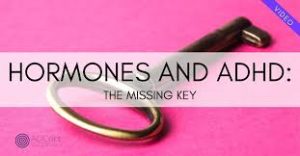
.
HORMONE LOSS, THE FEMALE BRAIN AND MENOPAUSE
Progesterone and estrogen play important roles in supporting female brain health. Both hormones have neuroprotective properties, preserving the health and function of brain cells.
Estrogen, specifically, promotes synaptic plasticity, crucial for learning and memory processes. However, during menopause, the decline in estrogen levels can hinder the brain’s ability to adapt and form new connections.
Furthermore, estrogen and progesterone influence the structure of the brain, including the density of neurons and the integrity of white matter tracts. Changes in hormone levels, during menopause, can lead to alterations in brain structure, potentially impacting cognitive abilities and overall brain health.
The common symptoms experienced during menopause, such as hot flashes, sleep disturbances, and mood changes, can indirectly affect focus, attention, memory, perception, language, problem-solving, decision-making, and executive functions (planning, organizing, and self-control).
Hormone loss and cognitive function encompasses the way we think, reason, learn, remember, and communicate. It influences our ability to process and understand information, make judgments, solve problems, and engage in daily tasks effectively.
Changes in cognitive function can affect our overall cognitive abilities, including memory, attention, concentration, problem-solving skills, and mental flexibility.
Many women have sleep issues during and after menopause. Sleep disruptions and lack of sleep, can interfere with memory and attention, contributing to short-term memory loss and brain fog experienced by some women during this phase.
.
.
DOPAMINE & SERATONIN NOW FUELS HER FEMALE BODY AFTER MENOPAUSE
During menopause, the decrease in female hormones, estrogen and progesterone, leaves her body relying on her dopamine and serotonin supply to support her daily body functioning, mood, memory, motivation and brain health.
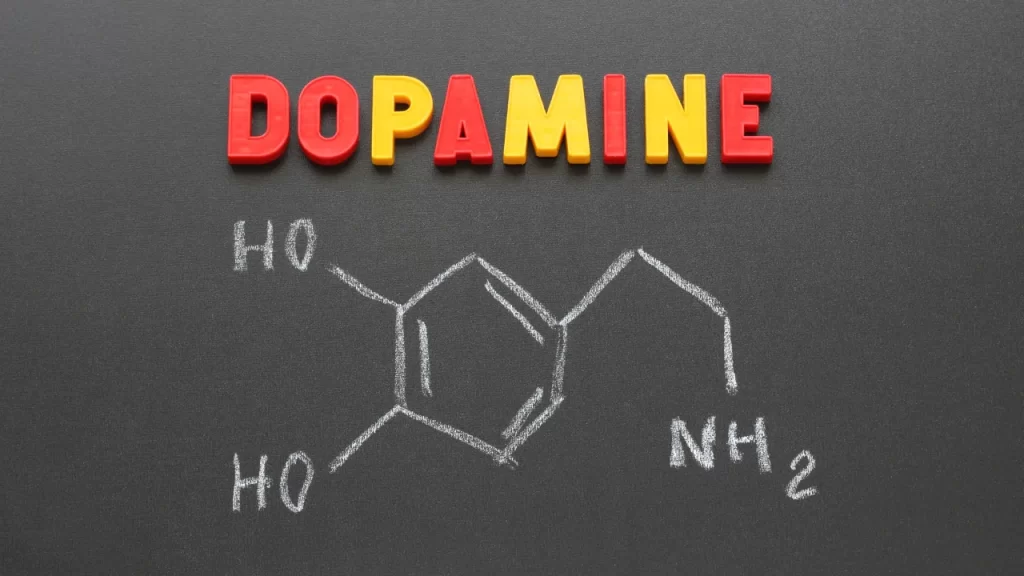 Dopamine is a crucial neurotransmitter released by the brain, responsible for creating feelings of pleasure and joy. Having the right amount of dopamine, is important for the aging female body, because dopamine facilitates effective communication between nerve cells.
Dopamine is a crucial neurotransmitter released by the brain, responsible for creating feelings of pleasure and joy. Having the right amount of dopamine, is important for the aging female body, because dopamine facilitates effective communication between nerve cells.
When her body has insufficient dopamine, the nerve cells can’t talk to each other and she experiences brain fog, a depressed mood and loss of motivation.
In addittion, the decrease in her female hormones can also impact her sex life, leading to changes in libido, vaginal dryness, and potential challenges with sexual desire and arousal.
.
.
Serotonin is known as a “feel-good” brain neurotransmitter because it helps regulate mood and is associated with feelings of happiness, contentment, and emotional stability.
 Serotonin is involved in regulating sleep patterns and appetite and is found in high concentrations in the gastrointestinal tract assisting digestion and smooth muscle function in the gut.
Serotonin is involved in regulating sleep patterns and appetite and is found in high concentrations in the gastrointestinal tract assisting digestion and smooth muscle function in the gut.
Sunlight exposure triggers the brain to release serotonin. When sunlight enters the eyes, it stimulates the production of serotonin in the nerve cells. This is why exposure to natural light, especially bright sunlight, is often associated with improved mood and feelings of well-being.
VITAMIN D: Research suggests a potential link between vitamin D deficiency and ADHD. Adequate levels of vitamin D are crucial for brain development and function.
Low vitamin D levels have been associated with an increased risk of developing ADHD symptoms, including inattention and hyperactivity. While more studies are needed to establish a definitive relationship, ensuring sufficient vitamin D levels through sunlight exposure or supplementation may be beneficial for individuals with ADHD.
.

.
BRAIN FOG, MOTIVATION & EXHAUSTION
When faced with additional stressors like demanding work commitments, family, friends and relationship partners, the depletion of dopamine and serotonin can contribute to both physical and mental exhaustion, pushing her female body and brain towards burnout.
All women want to feel like a fully funtioning human being. Being on the correct ADHD medication, gives a women the opportunity to feel youthful in her body again.
For me personally, my life is back on track, because my brain is functioning once again, my motivation has hugely improved, I have complete control of my thoughts and I am looking forward to my very positive future.
.
.
DIAGNOSIS & MEDICATION
Fortunately, if a woman experiencing complete physical and emotional burnout, finds a doctor who is well-versed in adult ADHD, a diagnosis and appropriate medication can re-invigorate her brain, normalize her life again and tackle the difficulties she is encountering.
Medications commonly prescribed for adult ADHD, such as stimulants or non-stimulant medications, work by targeting the neurotransmitters in the brain, including dopamine and norepinephrine, to improve brain activity, mental focus, attention, motivation and take control of her negative thoughts, so she can start thinking positive vibes again.
.
.
MY PERSONAL EXPERIENCE
ADULT ADHD
.
.
MY ADHD BRAIN OVERLOAD, BRAIN FOG AND SWITCHING OFF
 For me personally, I experienced many changes to my body and brain health after menopause.
For me personally, I experienced many changes to my body and brain health after menopause.
My un-medicated ADHD brain would easily become overwhelmed, leading to moments where I appear to disconnected and be in a brain fog.
My friends have said, that on many occassions, it appeared like I was away with the fairies, the lights were on, but no one was home.
This is because when I experience a dopamine drop (depletion) my brain gets fatigued, this affects my ability to stay focused and engaged. So, I just switch off.
.
ADHD Menopause Brain Burnout
UNREALISTIC EXPECTATIONS
As a older female who has now been diagnosed with adult ADHD, I must acknowledge my past tendency to set unrealistic expectations for myself. This has taken a toll on my health as I went above and beyond as a friend, helping others, rebuilding entire websites for free and working long hours without pay. I extended myself without considering my energy, brain health, and overall well-being.
Now, I want to clarify that hard work is not inherently bad. However, individuals with ADHD need to recognize their limitations. Taking on too much can lead to excessive stress, heightened emotions, and overstimulation of the nervous system, providing temporary dopamine hits / boosts.
Prolonged stress, depletes our body’s dopamine brain bank and eventually leads to dopamine burnout and exhaustion.
.

.
DOPAMINE BURN OUT
Dopamine burnout can manifest as feelings of mood depression, no motivation and total exhaustion. I personally have experienced dopamine burnout, and it was essential for me to rest and allow my body and brain to recover and recharge.
Over the past seven years I have spent weeks resting, being a hermet in my own home and not answering my phone, so I can recover and feel energized again.
I have to apologise to my dear friends who would ring me on the phone. I just didn’t have the energy to hold a conversation, my mood was low and I felt like I couldn’t hold a suitable, uplifting and positive conversation.
When one runs out of dopamine, the brain fog is just terrible and people with undiagnosed ADHD simply do no have the energy to function, on a daily basis. Been there, done that. It is very sad indeed!
.
.
ADHD HYPERFOCUS
 Hyperfocus plays a significant role in my life. When a new idea or business opportunity arises, my brain leaps into hyperfocus mode, passionately promoting and immersing myself in the endeavor. With tunnel vision, I devote myself entirely, leading to high levels of success, effortless idea generation, and speedy task completion.
Hyperfocus plays a significant role in my life. When a new idea or business opportunity arises, my brain leaps into hyperfocus mode, passionately promoting and immersing myself in the endeavor. With tunnel vision, I devote myself entirely, leading to high levels of success, effortless idea generation, and speedy task completion.
However, the downside of hyperfocus is my tendency to pursue perfection. As you read this article, I’ve likely re-read it numerous times, made multiple changes and corrections. I now realise, that I am in fact a recovering ADHD perfectionist.
.
.
ME, THE ADHD PERFECTIONIST
I have to say, that I certainly have been a perfectionist my whole life. I can hyperfocus on any subject, that I am extremely interested in, and being perfect in what I do has always been a huge part of my personality.
For me, the positive aspect of my perfectionism, is that, I like to be as accurate as I can and if I can’t produce a good work ethic, do the best job that I can, then I simply can’t be bothered. It is either an all-in or all-out attitude.
Cleaning the house can be an ordeal. I don’t just clean the house, I give it a major spring clean. So if I don’t have the time to fully make my home spotless, then I can’t waste my time getting started. If I start anything, it is the utmost importance that I give it my very best.
In my past experience of renovating homes and selling them, I often found myself feeling intensely frustrated and angry when tradespeople delivered subpar workmanship.
I have a strong aversion to cutting corners and producing inferior results. It becomes challenging for me to tolerate or accept poor workmanship from others, as I have a deep appreciation for high-quality craftsmanship and take pride in delivering excellence.
Now, after menopause and having an ADHD diagnosis, I do my very best not to let my perfectionism cause me anxiety. Now, as an older and wiser woman, I allow others to be imperfect, including myself. These days, I just do the very best that I can and not stress the small stuff.
.
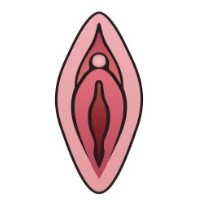
.
MY RESEARCH, THE ADHD PERFECTIONIST
ADHD perfectionism often arises from a desire to compensate for challenges associated with ADHD, such as difficulties with organization, time management, and attention.
Individuals may feel a heightened pressure to meet impossibly high standards or fear making mistakes due to a fear of criticism or failure. This drive for perfection can manifest in various areas, including academics, work, relationships, and personal endeavors.
However, ADHD perfectionism can be a double-edged sword. While it can lead to achievements and high standards, it can also result in excessive self-criticism, procrastination, anxiety, and a fear of taking risks.
The pursuit of perfection can become overwhelming and counterproductive, hindering progress and causing unnecessary stress.
.
.
ADHD AND FITTING IN
Many ADHD people would say that they feel like the black sheep of the family and that they have issues understanding social norms, verbal cues, staying on track during conversations and fitting in.
For Me: As I continue to learn and navigate social norms, I have made progress in understanding and interpreting social cues. Very occassionally, I still struggle with confidence in social situations, leading me to suppress my naturally excitable personality. I find myself being cautious with my words, and it honestly saddens me that I often downplay my true self.
So, in 2023, it is time, to be REAL and let my ADHD personality out, allowing myself to shine again.
I have come to the decision that, in social situations, if there is a fall out, and my personality is too much, well so be it!
.
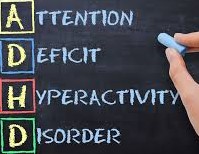
.
ADHD Menopause Brain Burnout
BURNING FRIENDSHIPS
In the past, I had huge difficulties in maintaining and keeping friendships. My excitable ADHD personality and over zealous exuberance, accompanied by my hyper partying lifestyle burnt many friendships. I was a truck load of full-on-fun, motivation and excitement, however, too over the top and too much!
Looking back, I crashed and burnt many dear friends. I over shared, my personality was up and down like a yoyo, and I can understand that people can only take so much.
I have to say this was a huge learning experience for me, I have learned my lesson, and now, in later life, I do have a handful of very dear and much loved close friends.
.
MY CHRONIC LATENESS
 Lateness has always been an issue for me and I have been running late my whole life, which I do acknowledge, is very inconsiderate of others.
Lateness has always been an issue for me and I have been running late my whole life, which I do acknowledge, is very inconsiderate of others.
I have to say, that I do miscalculate how long getting ready will take, and I can procrastinate, due to anxiety and nerves, until the last minute.
When I realise, that I am running very late, my heart beat races and I go into hyperactivity mode. The pay off is that I get a huge dopamine hit.
For an ADHD person, we unconsciously run late, because the anxiety of running late gives us a HUGE dopamine brain release – it’s like drinking coffee with 5+ shots or a cocaine hit.
So, now I’m running late, I feel very guilty and the negative thoughts that go through my head are soul destroying.
For instance, I have to meet a friend at a set time and I always miscalculate how long it will take me to get ready. In my mind, I 100% believe that it will only take me 10 minutes to get ready, when in reality, it will actually take me 40 minutes.
I often overlook the small tasks involved in preparing to leave the house, such as taking care of pets, selecting the right outfit, and ensuring my makeup looks perfect (due to my perfectionist tendencies).
Being unorganized contributes to my difficulties in finding things. The truth is, I find organizing tedious and time-consuming. I’d rather invest my time in more exciting and enjoyable aspects of my life – like writing this blog.
I have now discovered, through research the reason why ADHD people run late and it is because of dopamine. You see, the brain uses memory, attention, and dopamine to accurately predict time.
As discussed above, dopamine is a chemical released by nerve cells into the brain. Dopamine is a type of neurotransmitter known as a monoamine. It is produced in various areas of the brain and serves as a chemical messenger, transmitting signals between nerve cells (neurons) in the brain and facilitating communication between the brain and the rest of the body.
People with ADHD and dopamine issues can miscalculate how long tasks take and procrastinate until the last minute. They then get anxiety, because they are running unbelievabley late, which results in a big domapine brain hit.
Consistently running late and experiencing the rush of an upregulated state can lead to a release of dopamine in the brain. However, this frequent pattern, especially during menopause, can deplete the brain’s reserves and contribute to physical and mental burnout.
It is important to recognize the toll it takes on your well-being and acknowledge the need for recuperation and rest. Prioritizing self-care and finding strategies to manage time effectively can help prevent excessive dopamine depletion.
I have done this my whole life and time management has been a constant issue.
.
ADHD Menopause Brain Burnout
LATENESS & THE ADHD COCAINE HIT

People with ADHD, who frequently run late, push their nervous system into overdrive. An up regulated and stressed nervous system releases dopamine, providing a temporary boost similar to the effects of a cocaine hit.
The ADHD downside of constantly getting into this energized and stressful state, by activating many dopamine hits, can overload and deplete the human body, resulting in burn-out, a depressed mood, no motivation and fatigue.
.
.
ADHD Menopause Brain Burnout
SOME SIGNS OF ADHD IN MENOPAUSAL WOMEN ARE:
- Inattention: Increased difficulty concentrating, trouble staying focused, or being easily distracted.
- Forgetfulness: Heightened memory problems, increased forgetfulness, or difficulties with organization and time management.
- Emotional Changes: Mood swings, irritability, or heightened emotional sensitivity.
- Hormonal Fluctuations: Fluctuations in estrogen levels during menopause can potentially exacerbate ADHD symptoms.
- Executive Function Difficulties: Challenges with planning, decision-making, and problem-solving may become more pronounced.
- Increased Restlessness: Heightened feelings of restlessness, fidgeting, or difficulty staying still. Restless leg syndrome.
- Sleep Issues: Insomnia or disrupted sleep patterns, which can contribute to ADHD symptom exacerbation.
- Libido Issues: While not everyone with ADHD experiences sexual dysfunction, some women are affected by hypersexuality (very high sex drive), hyposexuality (very low sex drive or a lack of interest in sex), and other sexual factors that may cause them or their partners’ distress.
- Medication & Libido: Some ADHD medications may have side effects that affect libido or sexual functioning. It’s important to discuss any concerns or changes in sexual health with your healthcare provider.
.
ADHD Menopause Brain Burnout
ADHD OR ALZHEIMERS?
ADHD and Alzheimer’s disease are two distinct conditions that can sometimes exhibit overlapping symptoms, leading to some similarities in how they may appear. However, it is important to note that these are separate conditions with different underlying causes.
ADHD is a neurodevelopmental disorder characterized by symptoms like inattention, hyperactivity, and impulsivity. While typically present from childhood, it can persist into adulthood due to differences in brain structure and neurotransmitter function.
In recent years, an increasing number of menopausal women are been diagnosed with ADHD. During this of their life stage, they may notice changes in memory and increased distractibility.
Some women with diagnosed ADHD become concerned when their symptoms worsen, while others question if they have ADHD or Alzheimer’s.
.
ALZHEIMER’S DISEASE, on the other hand, is a progressive neurodegenerative disorder primarily associated with aging. It affects memory, cognitive function, and behavior. Alzheimer’s is characterized by the buildup of abnormal protein deposits in the brain, leading to the destruction of brain cells.
While some symptoms of ADHD, such as forgetfulness or difficulties with attention and memory, may resemble early signs of Alzheimer’s disease, it is important to consider the broader context. ADHD symptoms are typically present since childhood and are more pervasive, whereas Alzheimer’s symptoms typically occur later in life and progress over time.
If you have concerns about cognitive symptoms or memory issues, it is essential to consult with a healthcare professional who can provide an accurate diagnosis and appropriate guidance. They can evaluate your specific symptoms, medical history, and conduct any necessary tests to differentiate between ADHD and conditions like Alzheimer’s disease.
.
ADHD Menopause Brain Burnout
 Written by Aleena Aspley,
Written by Aleena Aspley,
Owner of Yoni Whisperer Bodywork
North Brisbane, Queensland Australia
www.YoniWhisperer.com.au
www.LingamWhisperer.com.au
www.AleenaAspley.com
.
My personal musings about my life and research about dealing with adult ADHD / ADD by Aleena Aspley, a Certified Sexological Bodyworker, Somatic Sex Educator, Intimacy Coach and NEO Tantra Professional.
.
ADHD, HYPER-FOCUSED AND THE CHRONICALLY LATE MENOPAUSAL PERFECTIONIST!

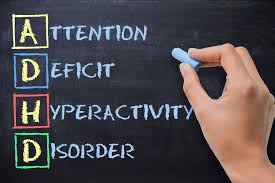
Pingback: Female Libido Sexual Health - Hormones, Childbirth & MenopauseYONI WHISPERER BODYWORK
Pingback: SEXOLOGICAL BODYWORK AUSTRALIA - What is this Holistic And Healing Modality? By CSB Aleena Aspley Brisbane
Pingback: PERINEAL MASSAGE INSTRUCTIONS By CSB Aleena Aspley Yoni Whisperer Bodywork Brisbane
Pingback: THE ADHD HYPERFOCUSED AND MENOPAUSEAL PERFECTIONIST -- By CSB Aleena Aspley Yoni Whisperer Bodywork Brisbane